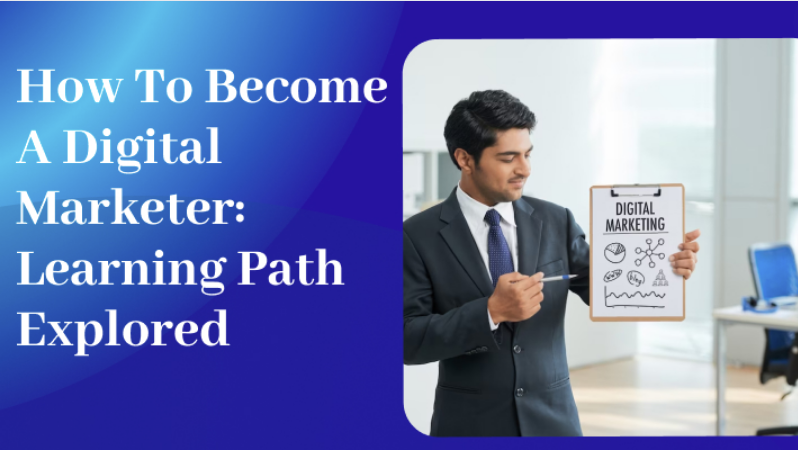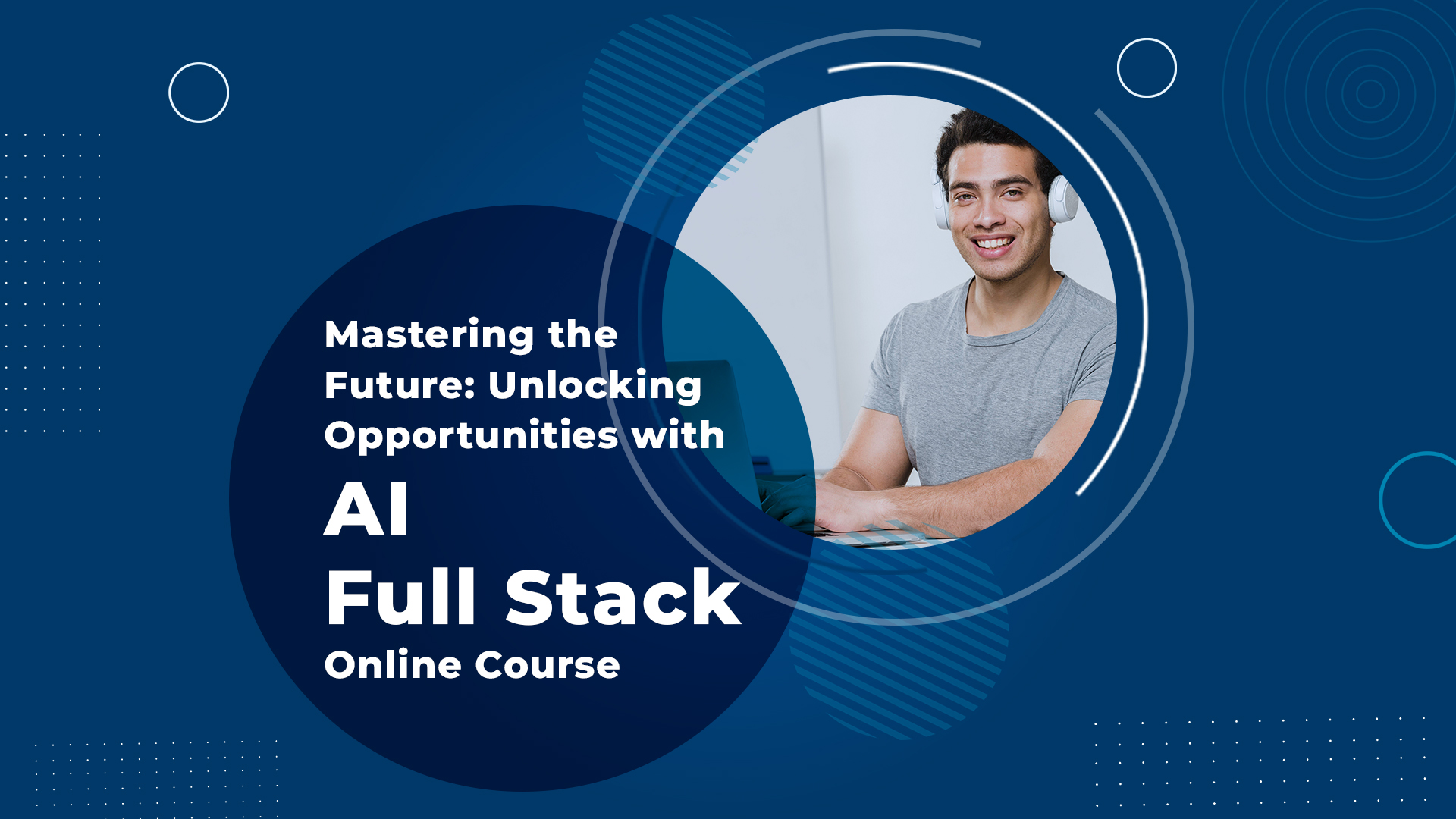What is Digital Marketing?
Digital marketing refers to the use of digital channels, platforms, and technologies to promote products, services, or brands to a target audience. Unlike traditional marketing methods that rely on offline mediums like print advertisements or television commercials, digital marketing leverages the power of the internet and electronic devices to reach and engage potential customers. It encompasses a wide range of strategies and tactics aimed at increasing brand visibility, driving website traffic, generating leads, and ultimately achieving business goals.
In today's digital age, businesses are increasingly relying on effective online strategies to reach their target audiences. Digital marketing has emerged as a vital component of modern business success. If you're interested in pursuing a career as a digital marketer, understanding the learning path and acquiring the necessary skills is crucial. In this article, we explore the steps and skills required to become a proficient digital marketer.
1. Understanding Digital Marketing
Before diving into the specifics, it's important to grasp the fundamentals of digital marketing. Digital marketing encompasses various strategies and techniques used to promote products, services, or brands through online channels. These channels include search engines, social media, email, websites, and more.
2. Acquiring Basic Knowledge
Start your journey by gaining a foundational understanding of key digital marketing concepts:
* Search Engine Optimization (SEO): Learn how to optimize websites to rank higher on search engine results pages. This involves keyword research, on-page optimization, link building, and understanding search engine algorithms.
* Social Media Marketing: Familiarize yourself with major social media platforms and their features. Understand how to create engaging content, run ad campaigns, and interact with followers.
* Content Marketing: Learn the art of creating valuable and relevant content that resonates with your target audience. This includes blog posts, videos, infographics, and more.
* Email Marketing: Understand the principles of effective email campaigns, including list building, segmentation, crafting compelling emails, and analyzing results.
3. Enroll in Digital Marketing Courses
Formal education can provide structured learning and a comprehensive understanding of digital marketing strategies. There are numerous online courses and certifications available from reputable platforms such as:
* Google Digital Garage: Offers free courses on various digital marketing topics, including SEO, social media, and analytics.
* HubSpot Academy: Provides a range of free courses covering inbound marketing, content marketing, and social media strategy.
* Techaedu: Offer a wide array of digital marketing courses taught by industry experts.
4. Specialize in Specific Areas
Digital marketing comprises various specialized areas, and becoming proficient in one or more can enhance your career prospects. Some areas to consider include:
* Search Engine Marketing (SEM): This involves paid advertising on search engines, commonly known as pay-per-click (PPC) campaigns. Mastering platforms like Google Ads can be highly valuable.
* Social Media Advertising: Dig deeper into social media advertising platforms like Facebook Ads, Instagram Ads, and LinkedIn Ads. Learn how to target specific audiences and optimize ad campaigns.
* Content Creation: Enhance your content creation skills by learning about copywriting, graphic design, video production, and storytelling.
* Data Analytics: Gain proficiency in analyzing digital marketing data using tools like Google Analytics. Understanding metrics helps you measure campaign success and make data-driven decisions.
5. Gain Practical Experience
Theory alone isn't enough in the digital marketing field. Practical experience is vital for honing your skills. Consider the following steps:
* Personal Projects: Create your own blog, social media accounts, or website to experiment with various digital marketing strategies.
* Internships and Freelancing: Seek internships or freelance opportunities to work on real projects. This provides hands-on experience and allows you to build a portfolio.
* Networking: Attend digital marketing conferences, workshops, and webinars to connect with industry professionals and stay updated on the latest trends.
6. Stay Updated on Industry Trends
Digital marketing is a rapidly evolving field. Stay up-to-date with the latest trends, algorithm changes, and technological advancements. Follow industry blogs, subscribe to newsletters, and engage in online communities to remain informed.
7. Obtain Certifications
Certifications can validate your expertise and enhance your credibility as a digital marketer. Some notable certifications include:
* Google Ads Certification: Demonstrates proficiency in Google Ads and PPC advertising.
* HubSpot Content Marketing Certification: Validates your knowledge of content marketing strategies.
* Facebook Blueprint Certification: Focuses on Facebook advertising and marketing.
8. Develop Soft Skills
In addition to technical skills, soft skills are crucial for success in digital marketing:
* Communication: Effective communication is essential for conveying messages clearly across various platforms.
* Creativity: Creativity helps you develop innovative campaigns and unique content that captures audience attention.
* Analytical Thinking: Data-driven decision-making relies on the ability to interpret and analyze metrics.
* Adaptability: The digital landscape evolves rapidly, so being adaptable is key to staying ahead.
9. Build a Portfolio
As you gain experience, build a portfolio showcasing your projects, campaigns, and results. A strong portfolio can make a significant difference when applying for jobs or freelance opportunities.
10. Job Opportunities and Career Growth
Digital marketing roles vary and can include positions such as digital marketing specialist, social media manager, content strategist, SEO analyst, and more. With experience and continuous learning, you can progress to roles like digital marketing manager, director, or even start your own digital marketing agency.
Conclusion
Becoming a digital marketer requires a combination of foundational knowledge, specialized skills, practical experience, and continuous learning. The field offers a dynamic and rewarding career path for those willing to adapt to changing trends and embrace new technologies. By following a well-structured learning path and staying dedicated to honing your skills, you can position yourself for success in the exciting world of digital marketing.





Leave a reply